122,255
We give a small number of people a lot of influence.
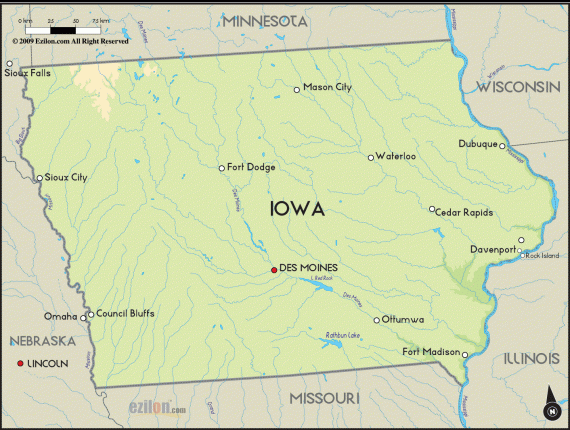 The number in the headline is the total number of votes (according to USAT) cast last night in the Iowa caucuses. That number is, again, 122,255. The winner (barring a recount*) is Mitt Romney with 30,015 votes—a whopping eight more than Rick Santorum.
The number in the headline is the total number of votes (according to USAT) cast last night in the Iowa caucuses. That number is, again, 122,255. The winner (barring a recount*) is Mitt Romney with 30,015 votes—a whopping eight more than Rick Santorum.
Look at those numbers: 122,255 and 30,015 (all to affect the allocation of 25 delegates). One ought to ask oneself: Why in the world are so few people allowed to significantly influence the nomination process of a major political party? And yet, here we are.
The question remains to me not whether the Iowa Caucuses are important (they are, because we** say they are), but rather should they be? It is worth noting over and over again that as the result of being first and getting substantial media attention we have turned a peculiar institution (small meetings of a relatively small slice of the population of a small state) and given it a great deal of importance. There really is no real reason to do this (i.e., this was not the result of a rational process of determining the best mechanism for choosing candidates). Really, a dispassionate examination of this process ought to lead to a serious discussion to scrap the process, and yet…
But, seriously, we are giving 122,255 people this much influence? This makes sense?
And yet, again, it cannot be dismissed. The most fundamental proof that the caucuses matter is threefold:
1. it usually causes some candidates to drop out
2. it influences fundraising going forward, and
3. it influences voters in the next contest, New Hampshire. These are all empirically observable and measurable outcomes.***
As such, I am going to disagree with my co-author, Doug Mataconis, who assessed the situation thusly:
With the results this close, it’s hard to really say what the outcome in Iowa actually means, or what impact it will have on the race.
I don’t think it is all that hard to say what it means.
First, the caucuses have underscored that the narrative we have been watching continues. Mitt Romney is the top candidate (just barely). His foundation of support in mid-20% range continues. This is important because it indicates that he continues to have a floor to stand upon which can be then built upon. The polls going into NH indicate that he will do quite well there (a CNN poll I saw last night put him at 47%). He will emerge, therefore, from the first two contest with the clear media mantle of “front-runner.” This matters.
Second, the roller-coaster of Not Romney’s continues. Ron Paul has appeared to have already crested and is starting to recede and now its Santorum’s turn (with the commensurate heavy media scrutiny coming his way over the next week). We will know relatively soon whether he has peaked in the Land of Corn or whether he, too, can build upon this success (I have my doubts). Regardless, his success in Iowa gives his candidacy life. This is a result of this contest and it matters.
Third, likewise: Ron Paul’s third place finish helps fuel his candidacy.
Fourth, at least one candidate, Rick Perry, is going to have to call it quits and another, Michele Bachmann is in the position of having to start facing reality. Newt Gingrich’s star has already faded and his 13.3% of the caucus vote hardly gives him a boost. Money will dry up. This, too, matters.
So, like it or not, Iowa has had an impact.
______________
*I am not sure at the moment if there is even a mechanism to do that or that it really would matter if they did.
**By “we” I do not mean the royal we, nor the collective OTB we, but the inclusive we: all of us.
***Quick empirical evidence: Perry is “assessing” his candidacy back in Texas (i.e., is dropping out), a CNN poll last night showed Santorum’s support in NH doubling already (from mid-single-digits to low double-digits). The money issue will be clear over the next several days.

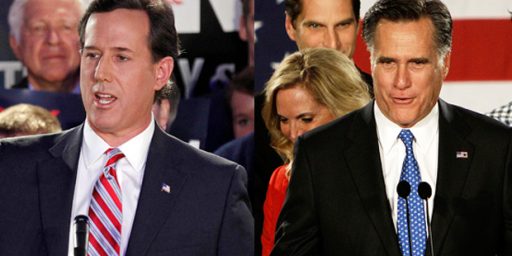
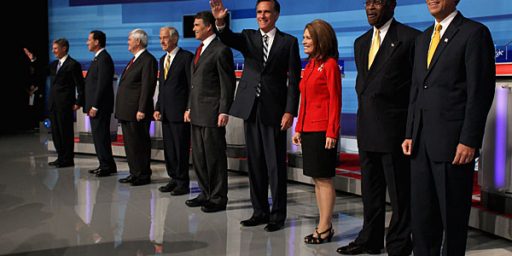
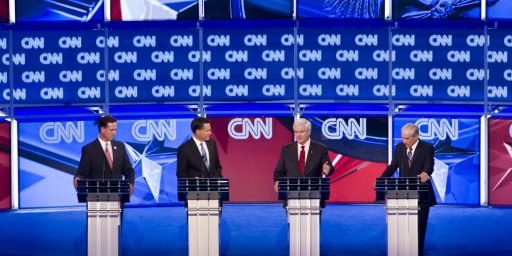
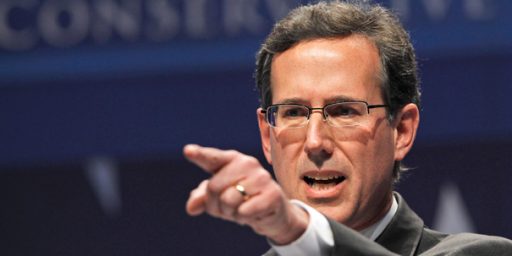

@Steven
I think stepping back to take as objective a view as possible inevitably leads to the conclusion our political system is dysfunctional, the result of distortions which have accumulated over a very long period of time. And I don’t think these problems are occurring in spite of the system, but because of the way the system has been shaped since the initial compromises by the Founders.
@Ben Wolf: I think that there is some truth in that observation, in fact.
“There really is no real reason to do this”
Unless you want to turn the Presidency into something ONLY the oligarchs get to play with, you’ve got to start the process in some way that gives candidates with little money or name-recognition a chance. It doesn’t have to begin with Iowa and New Hampshire but the same dynamic has to be preserved.
Mike
122,000 people. Yep.
In a state where the one and only industry is subsidized by federal taxpayers.
Where the population is 91% white and much older than average.
The only thing dumber than giving Iowa this much influence is that New Hampshire has roughly the same or even more influence. Tail wags dog.
@Tsar Nicholas II: “In a state where the one and only industry is subsidized by federal taxpayers.”
Wind-farming?
Seriously, during the last few elections, Iowa has been an important swing state, receiving as much money and attention in the closing weeks of a campaign as any state other than the big three (FL, OH, PA) In 2004, it received the most attention in the four weeks prior to the election than any other state per capita.
I think this is at the nub of the disagreement most commentors here have with Prof. Taylor’s criticism of the party selection system. Most people, perhaps romantically, want a short porch that gives new or unfamiliar faces a chance to become POTUS. The caucus encourages politicians, who wouldn’t have a chance in a larger, national selection process, to go to Iowa or NH and walk townsquares and shake hands.* When it turns out they are unsuccessful in these small contests, they drop out. Not because there is something bad about the caucus, but they perceived themselves as candidates who could build on a caucus victory or near-victory like Carter, and arguably Obama. The fact that this doesn’t happen much, still doesn’t mean it isn’t serving the desires of the electorate, and probably serves to legitimize the process more.
As for the IA caucus, they don’t look to me all out of line from the national polling averages at RealClear Politics if we assume Iowa is a “frontlier,” not an outlier, on bubbles:
Romney underperformed national polling by 0.2%
Santorum overperformed national polling by 20.3%
Paul overperformed national polling by 8.8%
Gingrich underperformed national polling by 13.9%Perry overperformed national polling by 3.9%
Bachman underperformed national polling by 1.2%
Santorum was overperforming Iowa polls before the caucus as well (by 8.2%). It looks to me like the Feiler Faster Thesis at work. Iowans are getting more information, quicker than the rest of the country, which largely has tracked similar bubbles at a lag.